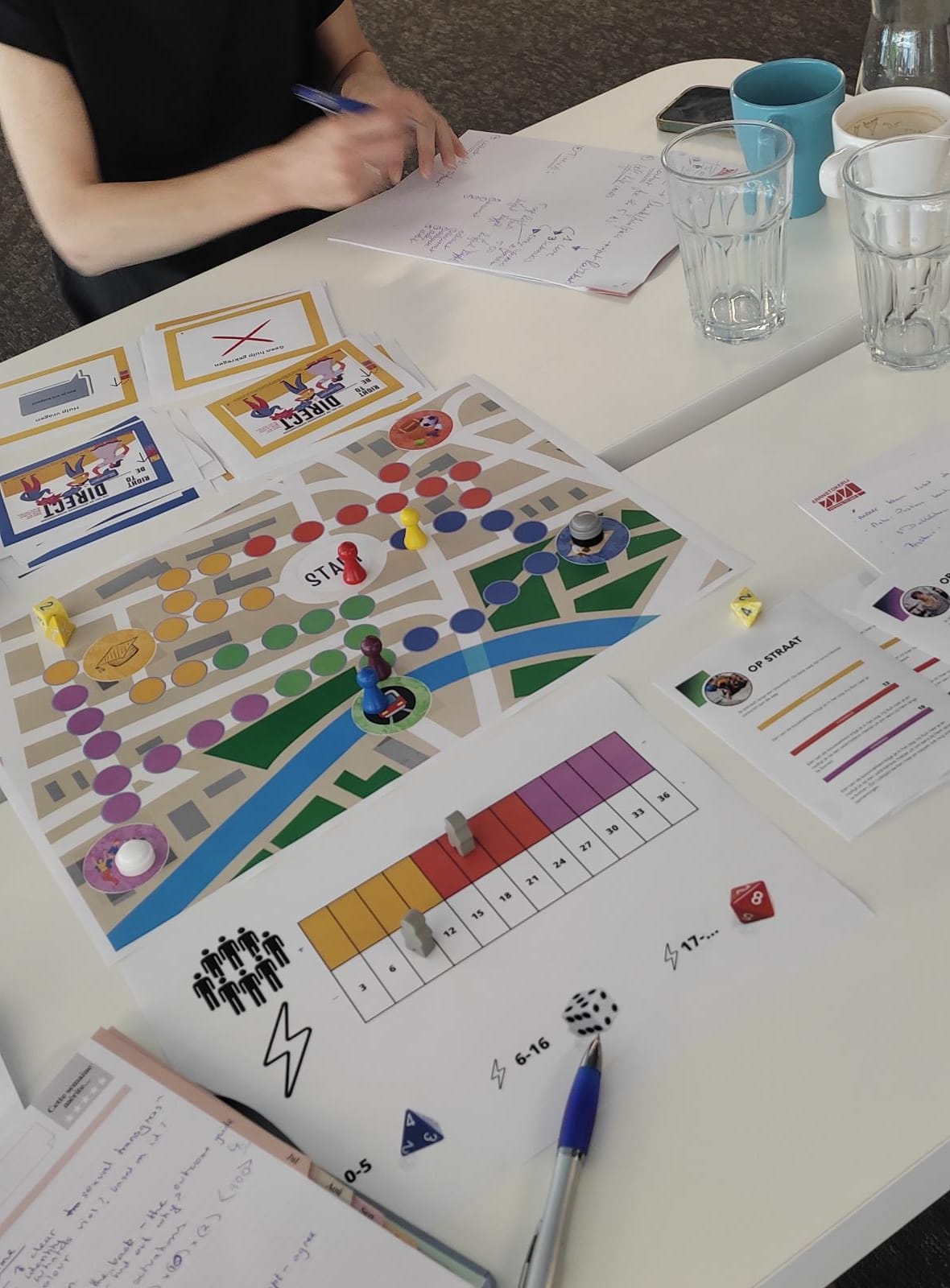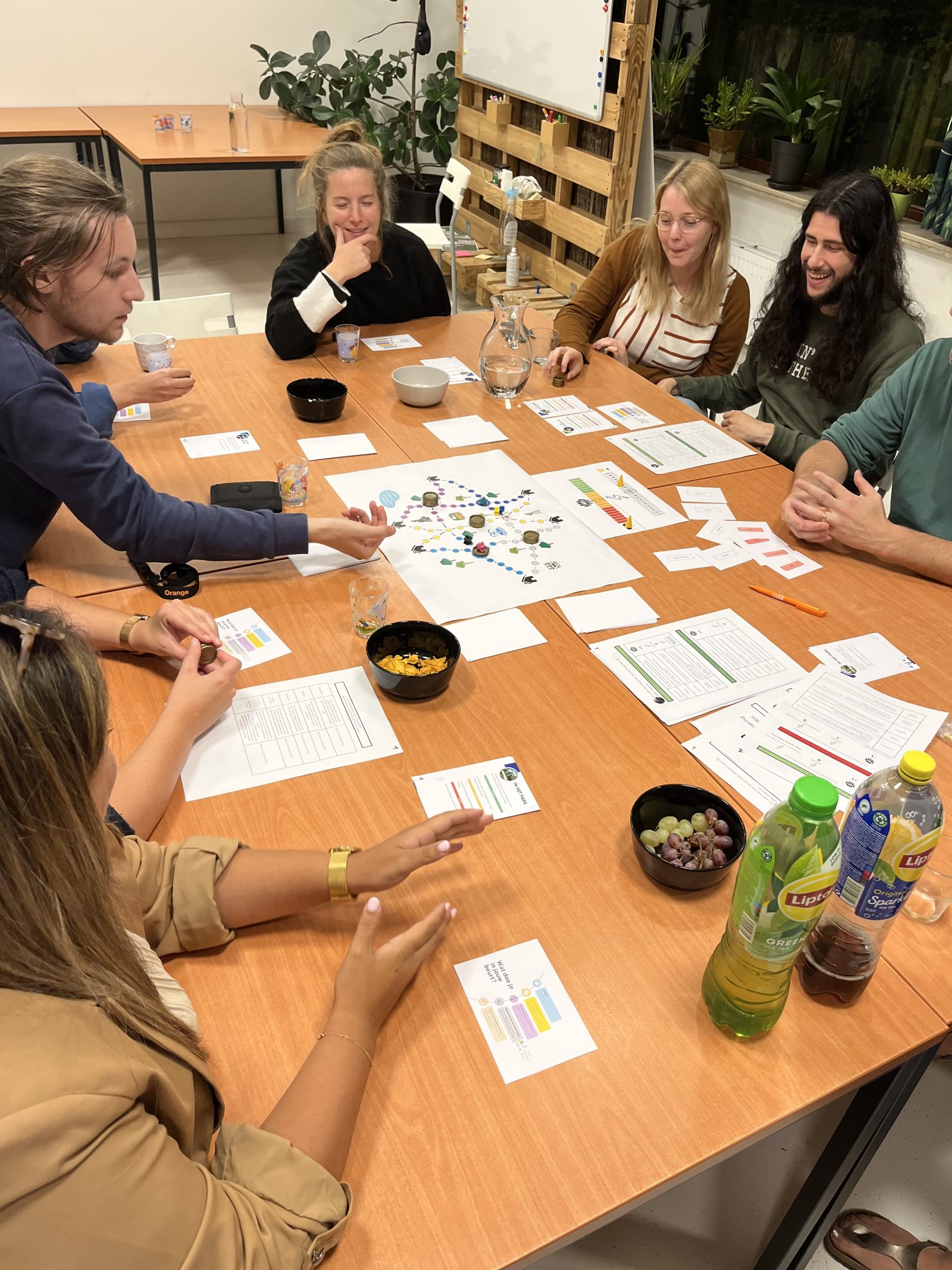Project Description:
Sexual violence and harassment (SVH) is increasingly recognized as a societal challenge in Brussels. Researchers and policymakers have suggested educational approaches to generate awareness, challenge norms and improve the capacity of bystanders. This project proposes to address SVH in urban spaces, through a citizenled intervention, which will use a game-based approach.
Project Type: Kick Starter
Theme: Cities for Life, Gender
Mentor: Rachel Pateman
Communities against Violence: Empowering Communities through Game-Based Prevention of Sexual Violence
‘Communities against Violence’ is an innovative project that emerged from a collaboration between the Research Centre of Gender, Diversity and Intersectionality (RHEA) at Vrije Universiteit Brussel and civil society practitioners at ZIJkant vzw in Brussels. The project engaged with citizen scientists, and game developers to combat sexual violence and harassment in Brussels’ public spaces through an engaging and educational board game.
Operating within an iterative framework, the project conducted co-creation workshops involving young citizen scientists. These sessions were instrumental in shaping the content and format of the board game, which aimed to raise awareness of sexual transgressions and encourage responsible bystander actions. Feedback from users during testing phases significantly informed refinements to the game, ensuring its effectiveness in imparting knowledge and altering behaviors.

One of the pivotal aspects of the project was its commitment to inclusivity and diversity. The game was meticulously crafted to be gender-inclusive, recognizing that sexual transgression affects everyone. Simultaneously, it aimed to address the unique vulnerabilities faced by women of colour, Muslim women, and LGBT+ individuals. Engaging citizen scientists and recruiting testers from diverse backgrounds ensured that intersectional perspectives were woven into the game’s fabric.
The IMPETUS accelerator played a crucial role in the project’s evolution and future trajectory. The mentorship provided invaluable guidance, offering a broader perspective on participatory research processes. The support from the mentor was instrumental in addressing challenges related to participant engagement and data collection, while also realigning the team with their overarching objectives amidst the complexities of a multi-stakeholder project.
Moreover, the accelerator’s boot camp emphasized the significance of early engagement with policymakers. This advice prompted proactive outreach to relevant public authorities and policymakers focused on public safety and violence. This collaboration culminated in securing a larger grant, facilitating the scale-up and dissemination of the board game to a wider audience.
Looking ahead, the project is poised for expansion and broader impact. With the foundation laid during IMPETUS, the team aims to reach a larger audience, fostering a culture of empathy, understanding, and active intervention against sexual violence. The project’s success in merging academia and civil society through community-driven and creative approaches demonstrates a promising pathway to address pressing social issues through collaboration.




